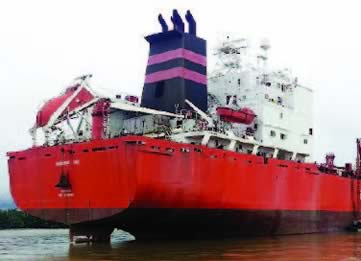
The lingering fuel crisis in Nigeria continues as petrol vessels have docked at ports in Lagos and other parts of the country.
Despite the arrival of petrol vessels, queues at filling stations in Abuja, Lagos, and other regions remain, with tanks running dry.
Dealers informed NewsNow that while vessels are arriving at the ports, this may not be sufficient to alleviate the scarcity.
They mentioned that depot owners are now prioritizing supplying fuel to their own stations due to low overall supply.
“Loading operations at the depots are sporadic. There is a lack of product available for third parties, as the depots are focusing on their own stations to maintain customer loyalty,” a dealer explained.
Another source mentioned to our correspondent, “Although vessels are arriving, the rate of discharge is insufficient to reduce queues. We need to expedite the process. The Apapa jetty alone requires simultaneous discharge from at least two vessels, but they are arriving sequentially, which does not adequately address the existing challenges.”
Meanwhile, the Nigerian Ports Authority disclosed that 16 ships were awaiting berthing at Lagos ports on Tuesday.
According to the NPA Shipping Position report, two ships carrying petrol and two with bulk and butane gas are anticipated to dock.
The NPA specified that these 16 vessels will berth at various terminals in Lagos, including ENL Consortium, AMPT, Apapa Bulk, and Greenview Development Nigeria Ltd.
Additionally, nine vessels are currently offloading crude oil, diesel, containers, gasoline oil, and other goods at different Lagos ports, as reported by NAN.
NewsNow highlighted that multiple petrol depots were without stock as of Sunday, resulting in fuel scarcity and queues in several states, including Lagos, Ogun, Abuja, Niger, and others.
In response to the situation, black marketeers have taken advantage by selling petrol at exorbitant prices in some regions of Lagos and Ogun, reaching up to N1,300 to N1,500 per liter.
The long queues observed at fuel stations in Abuja and Lagos since Friday have not dissipated.
“The NNPC Ltd acknowledged that the fuel supply challenges in parts of Lagos and the FCT were due to delays in vessel offloading,” stated Olufemi Soneye, NNPC’s Chief Corporate Communications Officer.
NNPC assured that they are working tirelessly with stakeholders to address the situation and restore normal operations.
However, despite NNPC’s efforts, the situation has not shown significant improvement as anticipated.
NewsNow also reported an increase in transportation costs as more filling stations remain closed.
